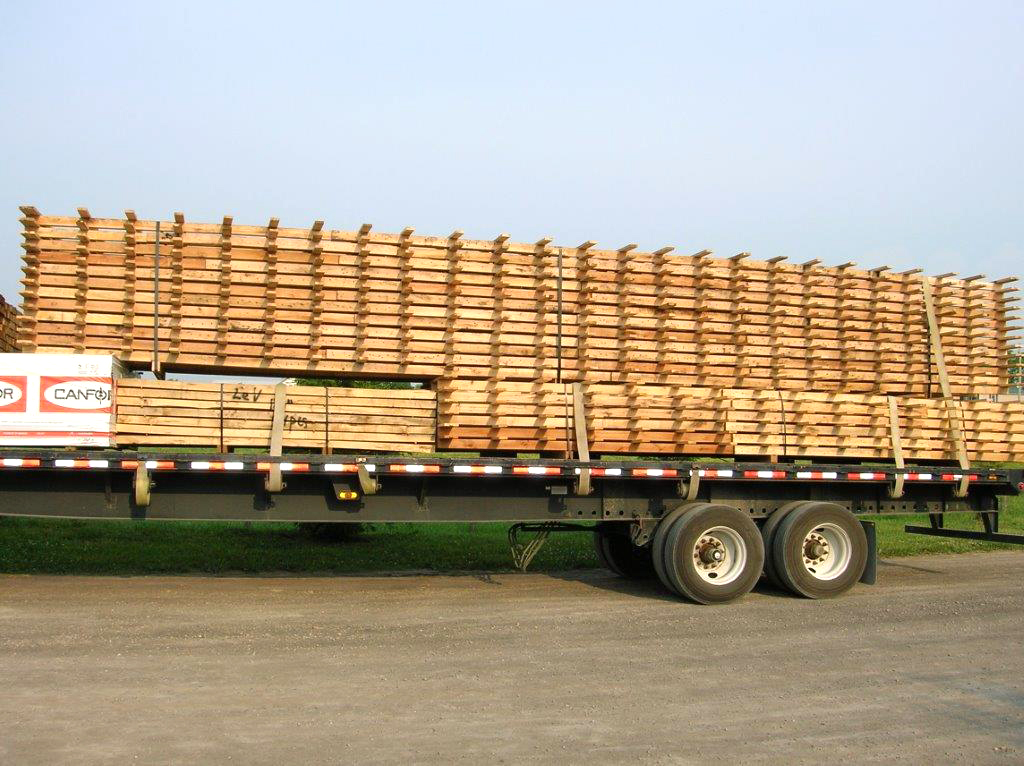Building Skill of Tailored Pallets: Art Meets Functionality
In the bustling world of logistics and warehousing, the significance of wooden platforms often goes unnoticed. These seemingly simple yet effective structures serve as the foundation of storage and transportation systems, acting a vital role in ensuring goods are transported smoothly and securely. As the requirement for personalized options grows, wooden pallets have emerged as a blend of art and utility, offering businesses the ability to tailor their storage requirements while maintaining long-lasting quality and sturdiness.
The craft of creating bespoke pallets is not just about function; it is about understanding the individual requirements of each storage facility. From different sizes to unique designs, wooden pallets can be modified to accommodate different goods and shipping methods. This versatility enhances workflow efficiency and minimizes damage during transport, making bespoke timber pallets an essential component for any modern warehouse looking to optimize its processes.
Designing Tailored Pallets

Developing tailored pallets is an essential step in enhancing warehouse functionality. All warehouse has unique needs based on the products being stored or transported. By producing pallets that are adapted to specific dimensions and load requirements, businesses can improve storage efficiency and improve the safety of their operations. Custom designs facilitate for better space management, guaranteeing that warehouses can accommodate varying sizes of goods without utilizing valuable floor space.
The materials used in tailored pallet design also have a key role. Wood pallets, for example, offer an excellent balance of strength, weight, and cost-effectiveness. Different types of wood can be used to provide durability while ensuring the pallets easy to handle. Additionally, the finish can be custom tailored to resist moisture, pests, or chemicals, which is essential for industries like food storage and pharmaceuticals where hygiene and compliance are important.
Moreover, tailored pallets can be designed to include particular features that promote more efficient handling and transport. This may include comfortable designs, such as built-in grips for simpler lifting, or special configurations that make stacking and loading more efficient. By acquiring expertly designed custom pallets, businesses not only enhance operational efficiency but also lower the risk of damage to goods and secure the safety of their workforce.
Materials and Techniques
Pallets made of wood are primarily made from hardwood or soft woods, each offering unique benefits for different applications. Hard wood, such as oak wood, provide strength and durability and strength, making them ideal for large loads and long-term use. Soft wood like pine are lighter and cost-effective, suitable for smaller items and one-time use. The selection of wood impacts not only the strength and weight capacity but also the cost and environmental footprint of the pallets.
The building of custom pallets involves various techniques that improve their functionality. The conventional method of pallet assembly involves nailing or using screws to secure the wooden boards together, but advanced techniques like dowel connections and specialized adhesives can boost strength and stability. Additionally, modern manufacturing practices incorporate machinery to create accurate cuts, ensuring consistency and reducing waste during manufacturing. This focus on precision in the construction process contributes to the longevity and dependability of wooden pallets.
Finishing methods also play a crucial role in the effectiveness of pallets made of wood. Treatments such as heat treatment or chemical preservation can prevent wood decay, insect infestation, and increase resilience to environmental factors. Tailored pallets in tulsa are often marked with designs or markings, using methods like stenciling or printing, which can serve both functional and promotional purposes. By combining premium materials with cutting-edge construction and finishing methods, custom pallets provide a flexible solution for warehouse requirements.
Advantages and Gains
Timber pallets are indispensable in various industries, serving numerous uses that boost efficiency and safety in warehouses. They are commonly used for holding of goods, shipping, and movement of goods. Their strong construction allows for efficient stacking, making the most of upward space. This is particularly beneficial in warehouses where utilizing limited space is essential. Custom pallets can be crafted to fit specific product dimensions, ensuring a secure fit that avoids movement during transportation.
The gains of using wood pallets reach beyond mere practicality. Timber pallets are often chosen for their ability to absorb shocks, which helps in protecting the items being shipped. Their organic properties also allow for superior breathability, reducing risks of moisture buildup and deterioration of products kept for prolonged periods. Moreover, wooden pallets are a eco-friendly choice, often made from renewable resources and can be restored or repurposed, demonstrating a increasing trend towards sustainable practices in warehousing.
Moreover, the tailoring of timber pallets enables businesses to distinguish their processes. Custom design allows for brand visibility and enhanced product visibility. Furthermore, tailored pallets can be optimized for specific handling equipment, such as pallet lifts and hand trucks, leading to more efficient operations. Overall, the applications and gains of timber pallets contribute substantially to efficient warehouse processes, underscoring their vital role in contemporary logistics.